Feeling peckish? Bite-sized bugs on the menu
As bugs start to hit supermarket shelves we speak to experts about whether eating insects is something that will really catch on.
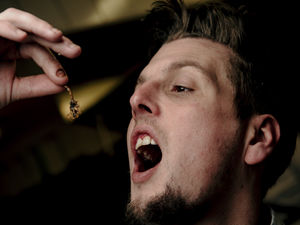
When fantasising about food, it’s unlikely that many of us consider scorpion tails to be our dream dish.
Images of Bushtucker Trials on I’m A Celebrity... come to mind when you think about chewing on creepy crawlies, but research is increasingly showing them to be a healthy source of protein.
Last year Sainsbury’s started to stock roasted crickets – so are our attitudes starting to change?
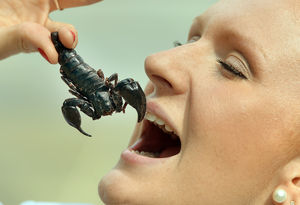
“There are a number of benefits to eating insects,” says Simon Leather, professor of entomology at Harper Adams University. “They are high in protein and have a lot of vitamins.
“In terms of area required to rear kilogram to kilogram they are much more efficient than traditional meat sources. You can rear millions of insects in a barn as long as you have the right conditions. They are carbon efficient and you are not using as much land. They are plant eaters and you can make food for them easily.
“People have eaten and do already eat insects all around the world, the problem in the Western world is that insects appear on too many of the ‘get me out of here’ shows. And companies try to sell them as insects rather than as processed foods. I always tell people ‘I wouldn’t eat my lamb chop with the wool on’ and the same goes for insects.
“You could make a faux chicken Kiev with mealworm. It would look and taste like a chicken Kiev, but it would be produced at the fraction of the cost and would be more nutritious.”
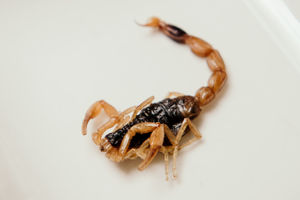
He also believes there would be less opposition to killing insects than there is to the killing of animals for human consumption.
“Apart from some more extreme vegans people won’t mind so much about the mass rearing,” he adds. “Insects don’t really have a brain, they will avoid certain conditions but they don’t feel pain in the same way we would. You can kill insects quite painlessly by lowering the temperature, such as putting them through a freezer in the process.”
Over two billion people worldwide enjoy insects as part of their diet, most commonly in Africa, Asia and South America.
In 2015 the Edible Bug Farm carried out a survey called ‘Breaking the Bug Taboo’ and it found that 25 to 34 year olds were the demographic most willing to try processed insect products, even when given little information about them beforehand, and 78 per cent of West Midlanders would be willing to try insects.
Francisca Sconce is an entomologist who studied at Harper Adams University in Newport and now works in outreach and engagement for The Royal Entomological Society.
“It’s really a Western thing that we have this taboo,” says the 33-year-old. “I have travelled to places like Malaysia where street food chefs use crickets, there are parts of Africa that serve mopane worms, which is like a larvae that people like to eat.
“There are lots of types of foods that have become normal. Look at things like quinoa, that was pretty niche but has slowly become something people buy, and I suspect eating insects might follow a similar path. It will be a slow burner.”
Insects also produce significantly less greenhouse gas than other livestock and need less water and feed. Locust, grasshopper, scorpion and cricket are the most popular options.
One person who is already open to cooking with bugs is 34-year-old Jack Hatley, from Oswestry.
Jack is a chef at the Gales Wine Bar and Hotel in Llangollen and first displayed his cooking with bugs at the town’s food festival last summer.
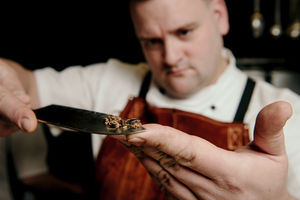
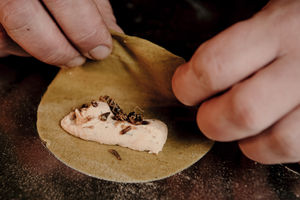
“We had been talking about the idea for a year but some of the customers were unsure and a food festival was a perfect place to trial it,” he says. “We wanted to do bushtucker trials but it was nice to get away from the perception of it being something disgusting.”
Jack dished up cricket guacamole and mealworm risotto for punters, who were happy to wolf them down.

“The flavour is not a massive issue,” he says. “It’s what you put with it. It’s all about the texture and they are quite pleasant. They are crunchy and crispy – not gooey and squishy like many people think. They are a great source of protein, and there’s no fat in them.”
The restaurant is to start serving insects soon to gauge the public’s reaction – but foresees them being a staple in a decade’s time, and says they will be supplied by farmers rather than foraged.
“You don’t want to be putting a jar down the bottom of the garden over night and seeing what you get, but some people believe that is what we do,” he adds.





